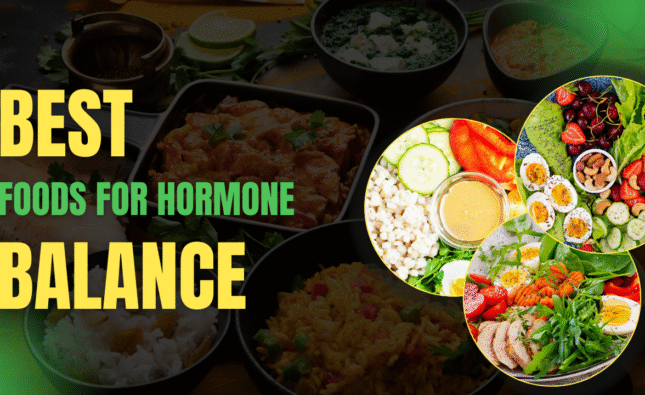
How to Maintain a Healthy and Balanced Lifestyle
Maintaining a balanced diet is more important than ever in today’s fast-paced world. A nutritious diet can boost energy levels, strengthen the immune system, and prevent chronic diseases. However, with the abundance of processed foods and conflicting dietary advice, many Americans struggle to make healthy choices. This guide will provide practical tips on maintaining a balanced diet for a healthy lifestyle, ensuring long-term well-being.
What is a Balanced Diet?
A balanced diet consists of the right proportions of macronutrients (carbohydrates, proteins, and fats) and micronutrients (vitamins and minerals) essential for overall health. The USDA’s MyPlate guidelines recommend filling half your plate with fruits and vegetables, one-quarter with whole grains, and one-quarter with lean proteins while incorporating healthy fats and dairy in moderation.
Key Components of a Balanced Diet
1. Fruits and Vegetables
- Provide essential vitamins, minerals, and fiber.
- Reduce the risk of chronic diseases such as heart disease and diabetes.
- Aim for 5-9 servings per day, as recommended by the CDC.
2. Whole Grains
- Rich in fiber, helping with digestion and heart health.
- Examples: Brown rice, whole wheat bread, quinoa, and oats.
- Look for 100% whole grain labels when shopping.
3. Lean Proteins
- Essential for muscle growth, tissue repair, and immune function.
- Include sources like chicken, fish, beans, lentils, tofu, and nuts.
- The American Heart Association suggests eating fish at least twice a week for omega-3 benefits.
4. Healthy Fats
- Supports brain function and hormone production.
- Found in avocados, nuts, seeds, olive oil, and fatty fish.
- Limit saturated and trans fats found in fried and processed foods.
5. Dairy or Dairy Alternatives
- Provide calcium and Vitamin D for bone health.
- Option for low-fat or plant-based alternatives like almond or oat milk.
- The USDA recommends 3 servings of dairy per day.
Tips for Maintaining a Balanced Diet
1. Plan Your Meals
Meal prepping helps avoid unhealthy last-minute food choices. Consider making a weekly meal plan and grocery list.
2. Stay Hydrated
Water is essential for digestion, circulation, and temperature regulation. Aim for 8-10 glasses per day, adjusting for activity levels and climate.
3. Control Portion Sizes
Use smaller plates to manage portion control and prevent overeating. Follow portion guidelines to avoid excessive calorie intake.
4. Reduce Processed Foods
Processed foods often contain excessive sugar, salt, and unhealthy fats. Option for fresh, whole foods whenever possible.
5. Practice Mindful Eating
Eat slowly, savor your food, and avoid distractions like TV or phones during meals. This can help prevent overeating and improve digestion.
Challenges & Solutions in Maintaining a Balanced Diet
Challenge: Busy Schedules
Solution: Prepare meals in advance, use healthy meal delivery services, or keep nutritious snacks on hand.
Challenge: Budget Constraints
Solution: Buy seasonal produce, shop at local farmers’ markets, and take advantage of discounts or bulk purchasing.
Challenge: Cravings for Unhealthy Foods
Solution: Substitute healthier options—swap soda for sparkling water, or chips for nuts.
Expert Opinions & US Dietary Guidelines
- According to the Harvard School of Public Health, a plant-based diet with lean proteins and whole grains reduces the risk of chronic diseases.
- The CDC reports that only 1 in 10 Americans eat enough fruits and vegetables daily—emphasizing the need for better dietary habits.
- The American Heart Association recommends limiting added sugar intake to 25g per day for women and 36g per day for men to prevent obesity and heart disease.
US-Specific Trends and Data
- The demand for organic and plant-based foods has grown by 12% in the past five years.
- Meal kit services like HelloFresh and Blue Apron have surged in popularity, making healthy eating more convenient.
- The Food and Drug Administration (FDA) has introduced new food labeling laws to help consumers make healthier choices.
Maintaining a balanced diet is essential for long-term health and well-being. By making small but consistent changes—such as incorporating more whole foods, staying hydrated, and planning meals—you can achieve a healthier lifestyle.
What are your favorite healthy meal ideas? Share your thoughts in the comments below! For more health tips and recipes, subscribe to our newsletter today.












